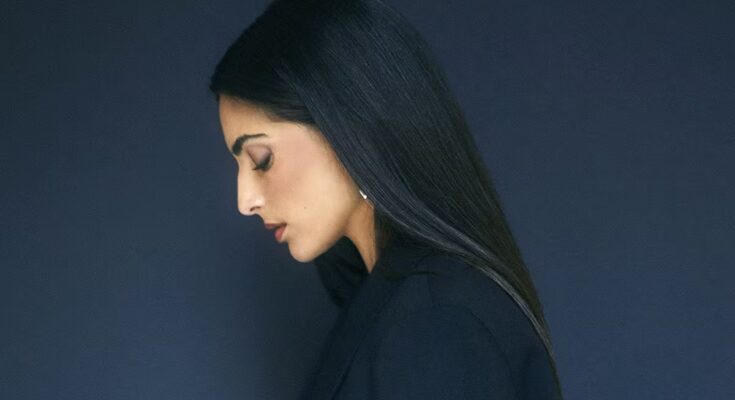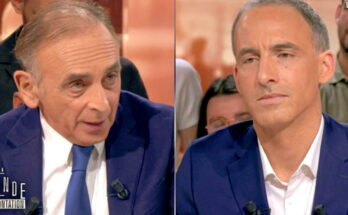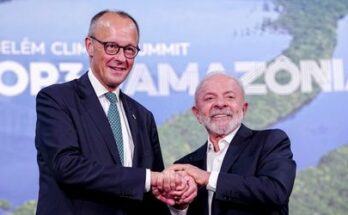“How can we allow a girl to beg for her life?” The question that actress Saja Kilani asked at the latest Venice Film Festival during the presentation of her film Hind’s voice it resonated in the international consciousness when nearly two years of genocide in Gaza had passed. The girl was five-year-old Hind Rajab, who on January 29, 2024 spent hours trapped in a car among the corpses of her relatives, calling and asking for help from Red Crescent volunteers who tried to help her without success.
The audio of those phone calls was released on social networks and the Tunisian director Kaouther Ben Hania spoke about it (The four daughters) constructs a film in which dramatization is only at the service of a devastating reality. After 20 minutes of applause in Venice, it won the Grand Jury Prize and made it to the San Sebastian Film Festival, where Kilani and his co-star Motaz Malhees were welcomed at their premiere with a demonstration in support of Palestine. Hours after that moment, weeks before the ceasefire in Gaza, we met her. “The energy in San Sebastián was incomparable, I had never felt anything like it before,” he explained with an emotional look.
Raised in Jordan by exiled Palestinian grandparents, Kilani was never able to visit her family’s land. He studied acting in Canada and Hind’s voice (in theaters November 28) is the first film he has distributed. Actress and poet, she uses art to give voice to her identity as an Arab woman, to heal, denounce, remember… Her grandmother in Tata, for example, or in Dear Vitiligo, where he transforms the past stigma of his skin disease into verse and body art. In Hind’s voice it is Rana Faqih, the Red Crescent volunteer who spoke to the little girl. “I’m just a tool to tell his story,” he says of his role in this film that could reach the Oscars (thanks to the executive production of stars like Joaquin Phoenix, Rooney Mara and Brad Pitt) so that people never stop talking about Hind Rajab and many other silenced voices.
When it arrived fusion I didn’t know what the movie was about…
No, they didn’t give us the script… It was like an improvisation, my character is called Rana, like my mother, and in the scene they sent me to test she was talking to a man called Rami, like my uncle, who had died only six months earlier. My mother said to me, “It’s a gift from your uncle.” It was so special that I think that’s why Kaouther saw something in me and gave me a chance.
Why do you say you took the risk?
Because at that moment I had nothing to teach him. He had just shot a film that they hadn’t even finished editing. It’s not very common for big directors like her to take risks with actors who have no previous credits. So the responsibility was twofold: to make sure she felt she had made a good decision and to do justice to the story.
And the first thing he does is talk to Rana, the woman he plays.
It’s the first thing we all did. Talk to our respective characters. I couldn’t meet her because she’s still in Ramallah, still working, but I made a friendship with her. He is one of the strongest people I know. The only thing he told me was to listen to the girl’s voice, that I wouldn’t need to copy it. He said, “Listen to her and you will respond as I did.” He saw the movie and my heart smiled with his message, he told me: “I am very proud of you.” It meant everything to me.
And you never heard Hind Rajab’s voice before filming?
We rehearsed a lot, but without the original recordings. And since we then shot in chronological order, every day was part of that recording, the reactions to what you see on the screen are the reactions we had. You really feel what you read in the script. That’s when acting as an actor and acting as a human being overlap. I really thought I was talking to her on the phone. And I completely disconnected. It was a very difficult time to film because of what happened and everything that’s going on. This is still happening. But every time you feel like giving up, you remind yourself why you’re doing it. It’s not every day you have the opportunity to tell the stories of your people with your voice. So it was a great privilege and a great honor.
The question he asked himself in Venice – “How can we allow a girl to beg for her life” – is the one that resonates when you finish seeing the film.
How is this possible? It’s crazy. I don’t know how we got to this, but I think that’s why this movie is important, because we live in a world where we only see numbers and it’s very easy to become desensitized. But with Hind these numbers become people. And the most powerful thing is that it is shot from the perspective of the Red Crescent, which symbolizes the audience. Each character represents the emotions people feel when looking at them. I wish we didn’t have to do this… But if we don’t make art to transform something in people, then why do we do it?
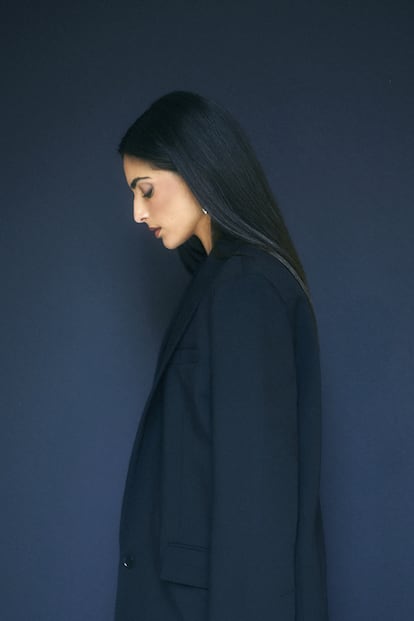
Do you write poetry, is art a kind of tool, a means to express your identity and power?
It is my main form of expression. As an artist, the reason I continue to create art is because it nourishes me internally. As an actress you are constantly auditioning and getting rejections and sometimes that can kill the artist. It’s normal for many to give up because they get lost, but poetry kept me going. I love art. I love any form of expression. I think it’s the most powerful tool.
Was the interpretation before the poem?
Yes, I studied theater in Canada and I love acting on stage. This is how I started to fall in love with poetry, because of a work in which my character recited poetry. And, in fact, what I like are poetry recitals, writing them and reading them to the public. I guess because it all comes back to interpretation…
As the grandson of Palestinians in exile, who has never been able to visit Palestine, he defines his identity as a memory.
Yes, it all goes back to my memories, to those of my grandparents. And this shows that our identity is also ancestral. It keeps you grounded, reminds you where you come from. And you always carry your roots with you, wherever you go. Kaouther said cinema serves to preserve memory, and that is exactly what Palestinians have been doing for decades. My grandparents were displaced and what made them strong as Palestinians was sharing the memories they had of living in their land. As a child I only listened to their memories and imagined that land that I have never visited but which I almost know. It’s a strange concept, but it demonstrates the power of memory. And cinema materializes this memory and captures it for you to see eternally.
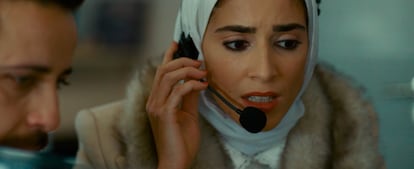
This year in Cannes the Palestinian directors Arab and Tarzan Nasser presented their film Once upon a time in Gaza which did not end with an “End” sign, but with an “It will end”… Because despite everything, there is hope.
It may seem obvious, but I really believe it: Hind held out hope till the end. He knew what would happen, but he kept hoping. And I think that’s the least we can do, that’s the only thing we can control. As a Palestinian, as an artist, the least I can do is use that hope and keep it alive, expand it. I hope that when people see this movie they get that feeling too.
